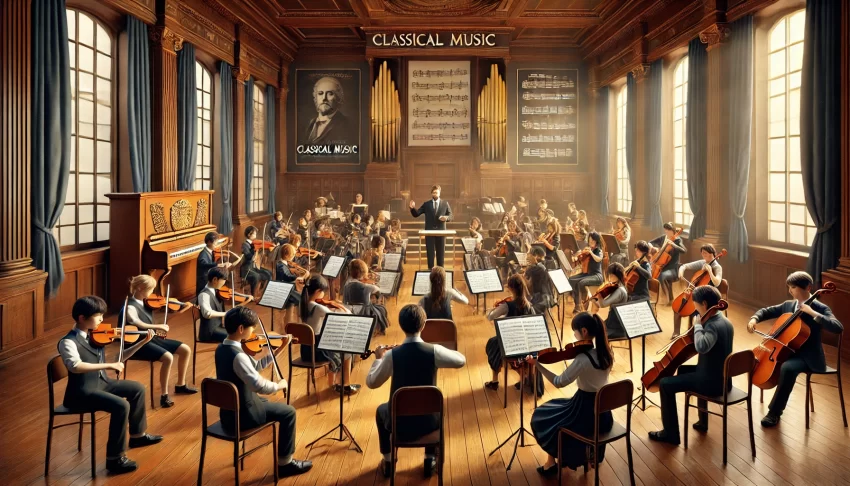Classical music might seem like an anachronism in an age dominated by rapid technological advancements and ever-evolving musical trends. However, the importance of classical music education remains undiminished. It offers profound benefits that extend beyond the realm of music, influencing cognitive development, emotional growth, and cultural understanding.
Cognitive Benefits
Numerous studies have shown that learning classical music can significantly enhance cognitive abilities. Classical music education requires students to engage in complex mental processes, including memory, pattern recognition, and critical thinking. Learning to read music, understand rhythm, and play an instrument involves both hemispheres of the brain, fostering improved coordination, problem-solving skills, and spatial-temporal skills.
A study conducted by the University of California, Irvine, known as the “Mozart Effect,” revealed that listening to classical music could temporarily boost spatial-temporal reasoning. While the direct correlation to overall intelligence is debated, the consistent practice and discipline required in learning classical music undoubtedly contribute to enhanced cognitive functions.
Emotional and Social Development
Classical music education also plays a vital role in emotional and social development. It teaches students patience, perseverance, and the value of sustained effort. The process of mastering a musical piece instills a sense of achievement and boosts self-esteem.
Moreover, playing in ensembles or orchestras nurtures teamwork and collaboration. Students learn to listen to others, synchronize their efforts, and contribute to a collective goal. These experiences foster empathy, social awareness, and the ability to work harmoniously within a group.
Cultural and Historical Awareness
Classical music is a rich tapestry of cultural and historical narratives. Through the works of composers like Bach, Mozart, Beethoven, and Tchaikovsky, students gain insights into different eras, societies, and artistic movements. This historical awareness helps students appreciate the evolution of art and culture and understand the socio-political contexts that influenced these compositions.
Additionally, classical music education encourages a broader appreciation of the arts. It opens doors to other forms of artistic expression, such as opera, ballet, and theatre, enriching students’ cultural experiences and broadening their horizons.
Emotional Expression and Mental Health
Music is a powerful medium for emotional expression. Learning to play classical music provides students with a healthy outlet for their emotions. It can be a form of therapy, offering solace and comfort during challenging times. The discipline of regular practice can also contribute to better mental health by providing structure, a sense of purpose, and an avenue for emotional release.
Conclusion
Incorporating classical music education into today’s educational landscape is more than a nod to tradition; it is an investment in the holistic development of individuals. The cognitive, emotional, social, and cultural benefits it offers are invaluable in nurturing well-rounded, thoughtful, and empathetic individuals. As we navigate the complexities of the modern world, classical music education’s timeless lessons and benefits continue to resonate, proving its enduring importance in our lives.
Embracing classical music education today is a way to connect with the past while preparing for the future, enriching our minds and spirits in ways that few other disciplines can.
